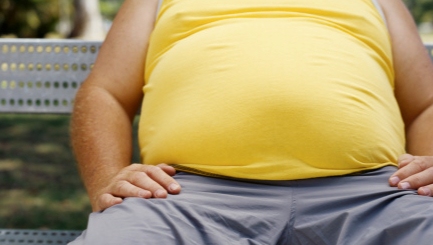Apple-Shaped Men at Risk of Osteoporosis
 Apples and pears may not be all that different, but when it comes to body shapes not all fruits are created equal as the wellbeing of men with excess fat in the belly area is at risk from a lack of osteoporosis, or bone disease.
Apples and pears may not be all that different, but when it comes to body shapes not all fruits are created equal as the wellbeing of men with excess fat in the belly area is at risk from a lack of osteoporosis, or bone disease.
Bone wellness isn’t the only risk factor of visceral or deep belly, obesity, as you may already be aware, but Miriam Bredella, M.D., radiologist at Massachusetts General Hospital and associate professor of radiology at Harvard Medical School points out ‘It is important for men to be aware that excess belly fat is not only a risk factor for heart disease and diabetes, it is also a risk factor for bone loss’.
In the West, obesity is an increasing problem as over 37 million American men over the age of 20, for example, are obese, according to the National Centre for Health Statistics. Their wellness is at risk to a whole host of problems such as cardiovascular diseases, diabetes, high cholesterol, asthma, sleep apnoea and joint diseases, but previously it was commonly accepted that men with increased body weight were at lower risk for bone loss.
For a study into this very idea, Bredella and her team evaluated the fat and muscle mass, as well as bone strength and fracture risk of 35 obese men with a mean age of 34 and a mean body mass index (BMI) of 36.5. The team did this after a multi-centre observational study indicated that male obesity was associated with fracture risk, because Bredella’s team wanted to see if belly size was a factor.
The reason the shape of the obese men was important was that not all fat is the same. There are 2 types of fat; subcutaneous fat which is the fat you can see and lies just below the skin, and visceral fat with is located deep under the muscle tissue in the abdominal cavity. Visceral fat is the truly dangerous kind, linked to heart disease, and so this is why excessive abdominal fat is a big risk factor.
According to Bredella ‘We were not surprised by our results that abdominal and visceral fat are detrimental to bone strength in obese men,’ but she concluded that the team was ‘however, surprised that obese men with a lot of visceral fat had significantly decreased bone strength compared to obese men with low visceral fat but similar BMI.’


Comments are closed.